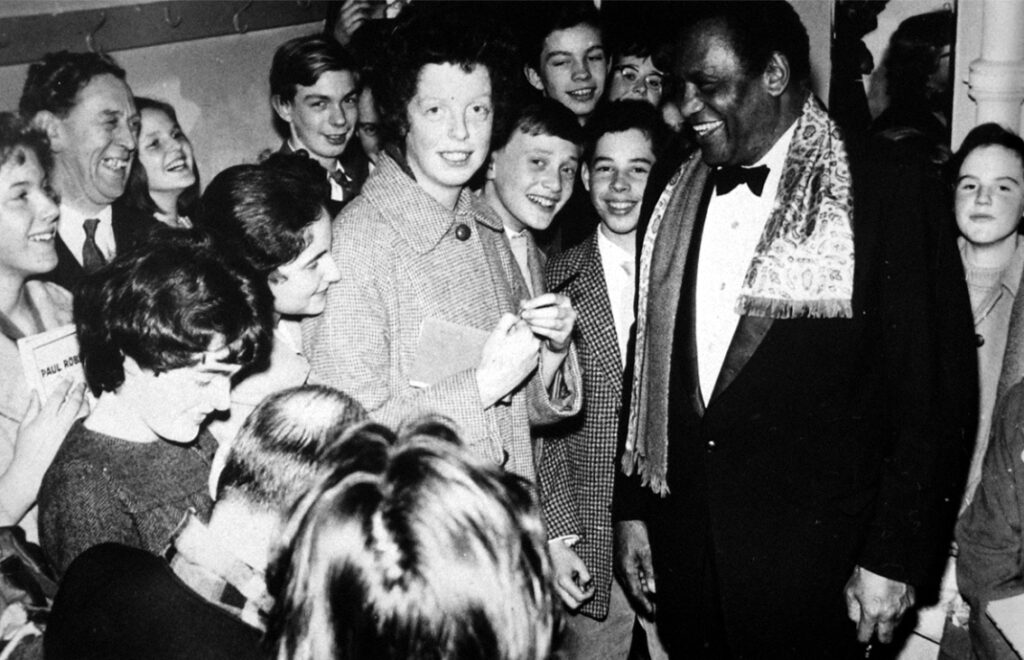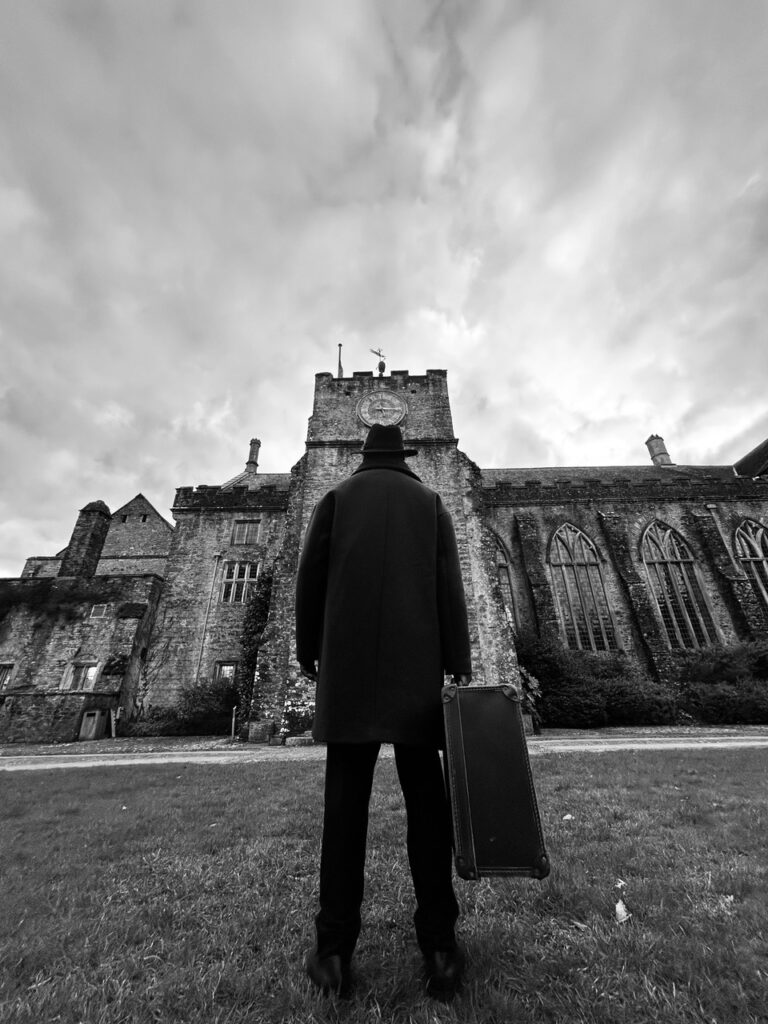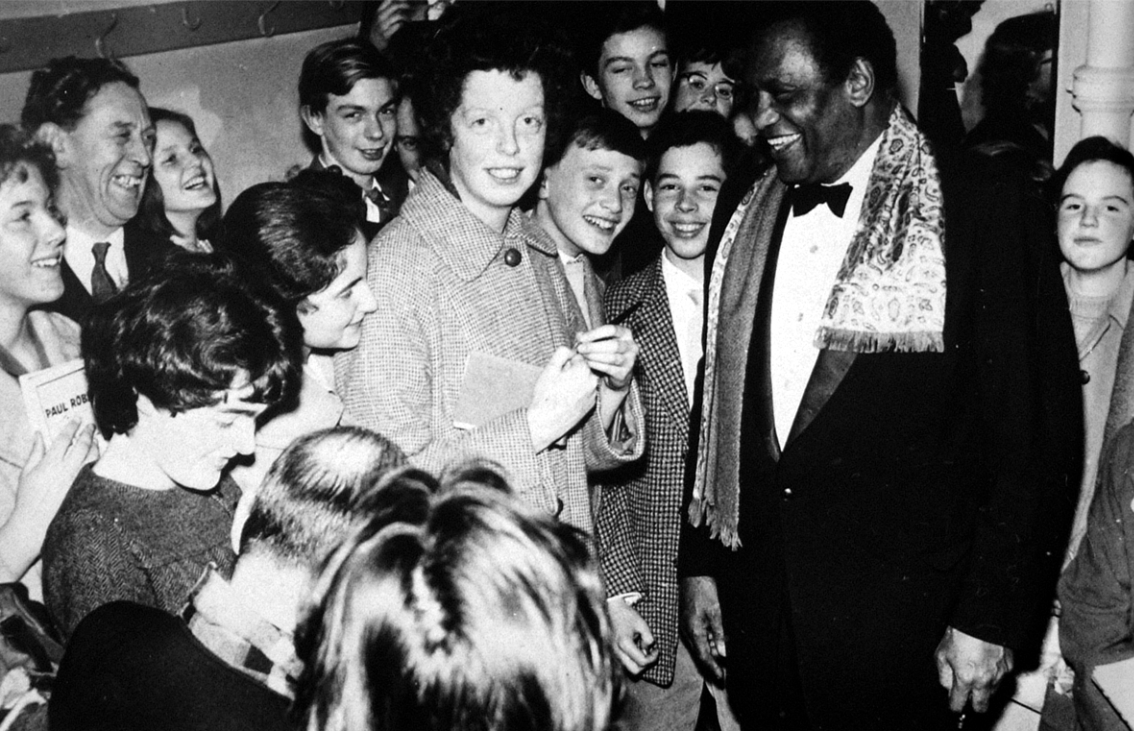West country radical?: a celebration of Paul Robeson in Devon
Most of us know the West Country as home of the Tolpuddle Martyrs and their struggle for trade union rights. It is less well known that Dartington Hall in Devon is where the Labour Party manifesto ‘Let Us Face the Future’ was written. This set the direction for the 1945 Labour government, founding the NHS and establishing our modern welfare state.
But Dartington Hall was already a centre for radical ideas. In 1930 Paul Robeson, an extraordinary actor, singer and athlete, came to Dartington to rehearse Othello, which he was performing with Peggy Ashcroft in the West End. It was the first time in 100 years that a black actor had taken the role, and a milestone in theatre history.

Robeson was internationally famous for his art, and equally famous for speaking out against colonialism abroad and racism in his native US. His visit to Dartington coincided with a great flowering of creative and radical experimentation, thanks to the influence of Dorothy and Leonard Elmhirst and their ‘Dartington Experiment’. The estate would soon become a refuge for artists and activists fleeing fascist Europe. Meanwhile Robeson founded the Council on African Affairs in 1937 and spoke uncompromisingly of the links between white supremacy and fascism.
The artist must take sides.
His unapologetic stance on social and civil rights would eventually lead to Robeson being blacklisted. He was brought before the House Unamerican Activities Committee in 1956, and charged with being a communist. In his eloquent and dignified testimony he told the Committee: “You are the non-patriots, and you are the un-Americans, and you ought to be ashamed of yourselves.”

Now the history of Robeson’s visit to Dartington and the political ferment of the time are captured in a multimedia live art event, Here I Stand. Actor-producer Patrice Naiambana will explore Paul Robeson’s life and art with a group of Devon-based and international artists, including Harold George, Choreographer/Dancer of the multi-award-winning ‘Making Men’ Dance Film, and Kwame Kwei-Armah, Artistic Director of the Young Vic. Speakers will join online from Zimbawe, Mozambique, and Europe, including renowned decolonial scholar Walter Mignolo.
The title of the piece is taken from Robeson’s book of the same name, which details his political ideas, his support for radical movements from the Spanish Civil war to striking Welsh miners, and his silencing by the US Government. In 1937, as fascism drew its net around Europe, he said: “The artist must take sides. He must elect to fight for freedom or slavery. I have made my choice. I had no alternative”.
‘Here I Stand’ will unfold at Dartington’s Studio One on Saturday 8 April. It combines storytelling, diaspora dance, traditional West African instruments and live contemporary sound design by Devon musician Ric White. There will also be a traditional Syrian buffet and a chance to discuss issues raised by Robeson’s life with leading decolonial thinkers
The Decolonial Salon is curated and initiated by Patrice Naiambana, an African Performing Artist from Sierra Leone based in Devon. He was awarded a Fringe First for his solo show The Man Who Committed Thought and has worked extensively with the Royal Shakespeare Company, The National and The Globe. His recent Screen credits include Death In Paradise, Criminal Record, Damsel, The Baby and Game of Thrones.
To find out more about this aspect of Devon’s radical history, and book tickets, visit the Box Office at Dartington Trust.


Nice piece, Helen. The photo was taken of a visit by a group of us -students at Dartington’s Foxhoke School- in 1958 backstage at a cinema in Exeter where the great man performed. We were invited backstage because of his earlier visit to Dartington in the 1930’s to perform Othello & his friendship with the Elmhirsts
Thank you for sharing that, Fiona, and for the correction – so the photograph was taken in Exeter and not at Dartington? I know the Elmhirsts went to hear him sing in Torbay in the 1920s so it was obviously a long connection. What do you remember about him? Are you in the photograph? What an amazing memory to have!